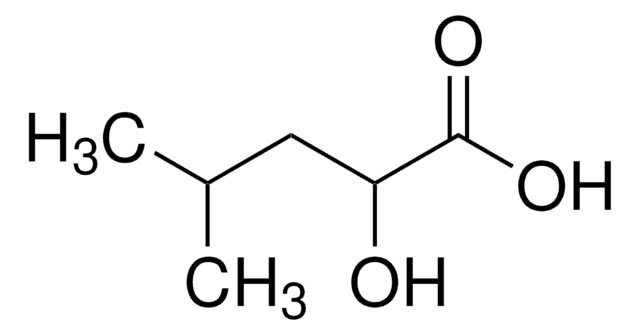H6521
2-Hydroxydodecanoic acid
≥98% (capillary GC)
Synonym(s):
α-Hydroxylauric acid, 2-Hydroxylauric acid, DL-α-Hydroxylauric acid
About This Item
Recommended Products
Quality Level
Assay
≥98% (capillary GC)
lipid type
saturated FAs
storage temp.
2-8°C
SMILES string
CCCCCCCCCCC(O)C(O)=O
InChI
1S/C12H24O3/c1-2-3-4-5-6-7-8-9-10-11(13)12(14)15/h11,13H,2-10H2,1H3,(H,14,15)
InChI key
YDZIJQXINJLRLL-UHFFFAOYSA-N
Looking for similar products? Visit Product Comparison Guide
Application
Storage Class Code
11 - Combustible Solids
WGK
WGK 3
Flash Point(F)
Not applicable
Flash Point(C)
Not applicable
Personal Protective Equipment
Choose from one of the most recent versions:
Certificates of Analysis (COA)
Don't see the Right Version?
If you require a particular version, you can look up a specific certificate by the Lot or Batch number.
Already Own This Product?
Find documentation for the products that you have recently purchased in the Document Library.
Customers Also Viewed
Our team of scientists has experience in all areas of research including Life Science, Material Science, Chemical Synthesis, Chromatography, Analytical and many others.
Contact Technical Service













